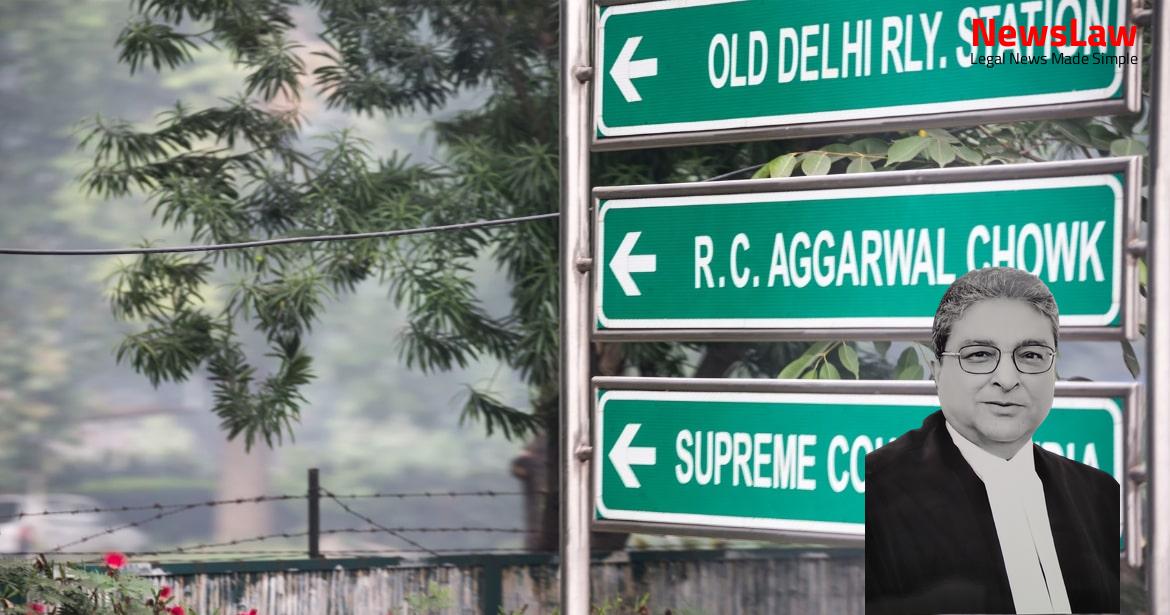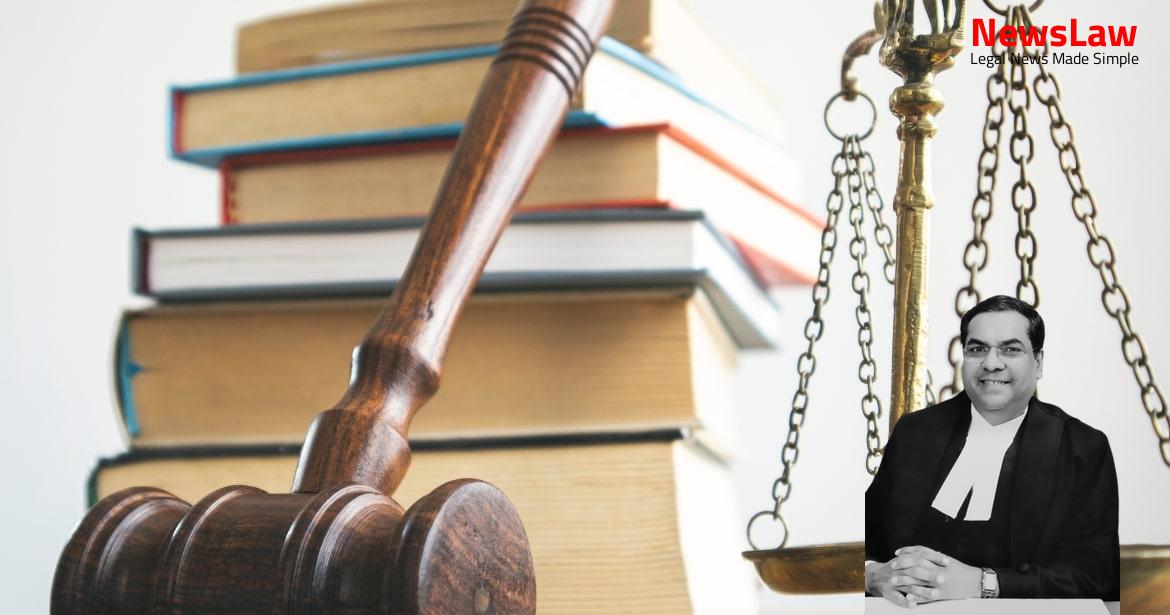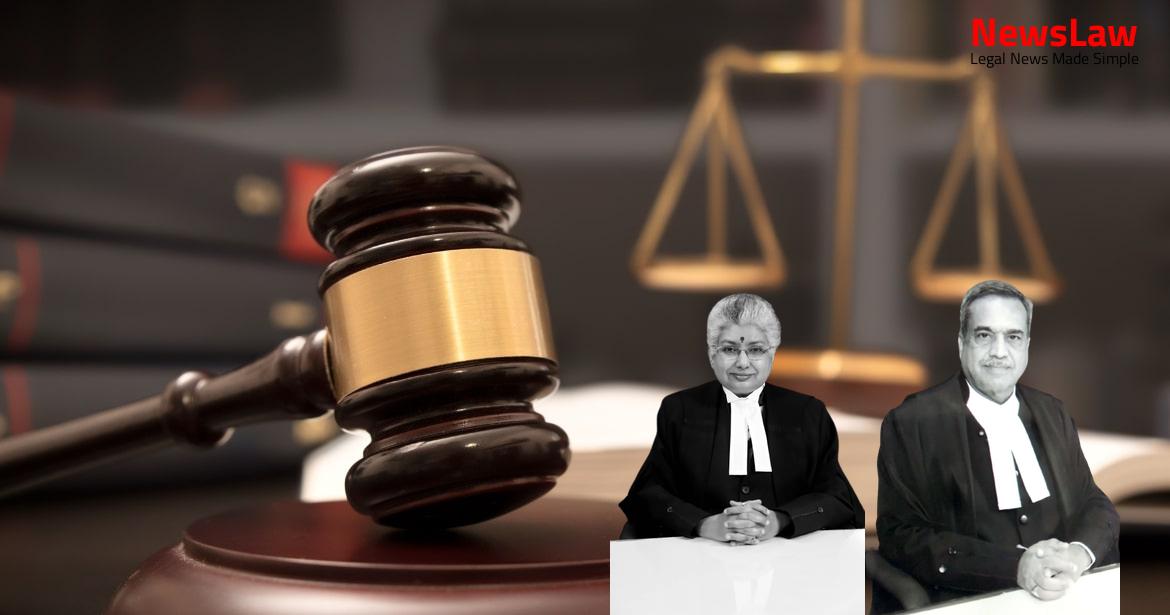In a recent landmark case, the Supreme Court of India delved into the intricacies of revisional powers under the Kerala Rent Control Act. The dispute between the Land Tribunal and Rent Control Court highlighted the importance of proper interpretation and application of the law. This case sheds light on the complexities of legal proceedings and the need for a thorough understanding of the provisions involved.
Facts
- Sankara Kurup owned a piece of land with a Theatre named ‘Manorama Theatre’ on it.
- The Theatre was managed by his son-in-law Kumara Kurup, who is the predecessor of the respondents.
- Kumara Kurup filed for assignment of the property in his favor but the application was rejected.
- The respondents inherited Kumara Kurup’s interest and it is admitted that Viswanatha Kurup is the legal heir.
- The denial of title raised by the respondents is not considered bona fide.
- The appellants filed for eviction of the respondents in 2009 before the Rent Control Court.
- After the death of Sankara Kurup, his son Viswanatha Kurup claimed rights through a Will.
- The Land Tribunal found that the property and cinema theatre absolutely belong to the predecessor of Narayana Kuruppu Viswanadha Kuruppu.
- The claim for tenancy made on the allegation that petitioner was a cultivating tenant was not genuine and was not maintainable.
- The finding was that the claimant was the Manager of the theatre, which is not the situation as far as the property is concerned.
- The Rent Control Appellate Authority dismissed the appeal stating that the evidence provided cut the root of the case advanced by the respondents.
- The High Court found no material to support a landlord-tenant relationship between the parties.
- The Rent Control Court accepted the plea that the appellants bona fide required the property for conducting a Cinema Theatre.
- The oral evidence and accounts maintained showed that the property and cinema theatre belong to the respondent’s father and passed to him after his father’s death.
Arguments
- Mr. Kaleeswaram Raj, learned Advocate, represented the appellants.
- Mr. P.B. Suresh, learned Advocate, represented the respondents.
- In the proceedings before the Land Tribunal, Kumara Kurup claimed he was a tenant of the suit property.
- The existence of the tenant-landlord relationship was considered a jurisdictional fact.
- Mr. K. Sukumaran, senior counsel for the appellant, argued that the revisional court cannot reappreciate evidence and overturn the findings of the appellate authority.
- The learned counsel for the respondent argued that a previous decision would not apply to the current case as it involves a jurisdictional fact.
- In cases where the dispute is related to a jurisdictional fact, the revisional court should have the power to reevaluate evidence and reach its own conclusion.
- No specific authority was provided to support this argument, but it was based on a first principle approach.
Also Read: CRPF Act: Validity of Rule 27 for Compulsory Retirement – Case of Head Constable vs. CRPF
Analysis
- The revisional court is not entitled to reappreciate the evidence and substitute its own conclusion for the appellate authority’s.
- Revisional power under the Rent Act is broader than Section 115 of the Civil Procedure Code, but not equivalent to second appellate power.
- The Rent Control Court lacks jurisdiction to entertain eviction petition without material proving a landlord-tenant relationship.
- The High Court’s re-appreciation of evidence exceeded its revisional jurisdiction.
- Even with the word ‘propriety’ in Section 20, evidence reappreciation is not permissible.
- The High Court’s decision was unsustainable and the appellate authority’s order was affirmed.
- The scope of revisional powers under Section 20 of the Act was discussed in the case of Rukmini Amma Saradamma v. Kallyani Sulochana and others.
- The High Court cannot act as a first or second court of appeal even with the wider language of Section 20 of the Kerala Rent Control Act.
- The word ‘propriety’ does not empower the High Court to reappreciate evidence to reach a different conclusion, but is limited to evaluating the legality, regularity, and propriety of the impugned order.
- In Hindustan Petroleum Corporation Limited v. Dilbahar Singh and Ubaiba v. Damodaran, the revisional powers of the High Court under Rent Acts in different States were considered.
- The decision in Rukmini Amma Saradamma v. Kallyani Sulochana was referred to in another paragraph showing the approval of the Court regarding the view on revisional powers.
- The court referred to a previous decision in the case of Rukmini Amma Saradamma v. Kallyani Sulochana where a similar provision of the Kerala Act was considered.
- The reliance on this previous decision was made to support a particular contention in the current case.
- The court found the decision in the Rukmini Amma Saradamma case relevant to the interpretation of the Kerala Act provision being discussed.
- High Court should not have re-appreciated the evidence
- Concurrent findings by lower courts should not have been interfered with
- Findings by lower courts were well supported by evidence
- Findings were not deemed to be perverse in any way
Also Read: DAMEPL vs. DMRC: Curative Petition and Arbitral Award Restoration
Decision
- The appeal has been allowed.
- The judgment and order dated 09.08.2018 passed by the High Court have been set aside.
- The Decree for eviction as passed by the Rent Control Court and confirmed by the Rent Control Appellate Authority, Alappuzha has been restored.
- No costs ordered.
Case Title: THANKAMONY AMMA Vs. OMANA AMMA N.
Case Number: C.A. No.-006147-006147 / 2019



